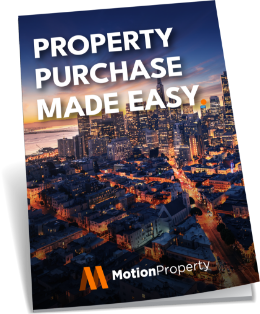Whether you’re itching to get on the property ladder or just considering switching lenders, ensuring you ask your broker certain questions could set you up for long-term success, experts say.
Questions around loan suitability and individual circumstances are fundamental for both parties to find an appropriate solution. In the context of the current interest rate hikes, knowing the right broker and the right questions are even more important, says Domain chief of research and economics, Dr Nicola Powell.
“All market conditions have changed, and the importance of a broker is probably heightened under today’s conditions because we’ve seen the interest-rate environment change so rapidly,” she says.
With interest rates continuing to rise at their fastest rate since 1994, the latest Domain House Price Report reveals that, while prices are expected to continue to fall further, it is likely that the September quarter could mark the peak quarterly decline. For home owners and potential buyers, this means it could be time to have a conversation with their broker.
“Whenever there’s a huge shift, it’s always a good time to have a chat and ask, ‘What does this mean for me?’ ” says Marcus Russell of Domain Home Loans.
Here are seven broker-backed questions people should ask in order to arm themselves with enough knowledge to make big property decisions.
1. How can I decide which loan is best suited for me?
It is important that prospective home owners ask their broker how they decide which type of loan suits them and their circumstances. This provides insight into how the broker will discern which banks are viable options, Russell says.
“It ties into a broker’s ‘best interest duty’ requirements: what are you looking for, what is important to you and how is this suited to [you],” he says.
“A good broker will understand your profile first and then find the bank that fits you.”
2. How much can I borrow?
Calculating your borrowing capacity online is one thing, but talking to an experienced broker means they can understand more about your personal circumstances, property journey and future goals. This can help prospective home buyers understand what is possible.
“A broker can play an important role in ensuring that you have the best mortgage for your personal circumstance,” Powell says.
For example, an online calculator is not going to ask buyers what their goals are, so it’s important to have that conversation with a broker.
“You’re not going to get the full extent of your borrowing capacity [online],” Russell says, “the other part to that, as well, is understanding goals.”
3. How many lenders do you have on your panel?
Asking a broker how many lenders they have on their panel allows you to understand the range of options available and can provide a point of comparison to compare other brokers too. In general, the more lenders a broker has to offer, the better, says Russell.
“When you’ve got a lot of lenders on your panel, it means you’ve got a lot of solutions to a problem. The whole idea is that if you’ve got something for everyone, rather than just having everything for a few people,” he says.
“More choice, more options, more solutions.”
4. Is a variable or fixed-rate loan best for me?
Would-be home owners should ask their broker which type of loan is best for them and be given helpful information in a digestible, impartial and easy-to-understand way, Russell says.
While brokers cannot give specific recommendations on what type of loan to go with (they offer more general advice due to licensing restrictions) they should help home buyers understand the benefits and limitations of the options available, he says.
“A good broker will provide an easy-to-navigate list of pros and cons [for each loan type] and explain the importance of considering splitting the loan to essentially enjoy the best features of both fixed and variable,” Russell says.
5. What additional features would you recommend?
Taking the time to delve into specific home loan features and understanding how they suit your circumstances can mean fewer issues down the line.
At a minimum, customers should ask if they’ve got a method of paying back the loan faster – known as a redraw feature – and ask their broker how they can do that, Russell says.
“The vast majority of loan products have a redraw feature, which is incredibly important; it’s easily accessible, it’s free and it lets you pay down the loan quicker,” he says. “There’s no additional charge and no hidden terms and conditions by law.”
6. What are the fees and charges associated with this lender and loan?
Although asking questions about fees and charges may seem obvious, Russell says many people don’t think to enquire about any extra or hidden costs.
“The earlier someone knows about things like that, even if it’s completely irrelevant at the time, the better,” he says. “There’s nothing worse than seeing a fee you weren’t told about.”
7. Can I choose to fix my interest rate later?
In a fluctuating market, it’s better to ask if and how you can change your interest rate from fixed to variable – and vice versa – sooner rather than later, Russell says.
In the last decade, the Australian property market has seen unprecedented changes and many are rightly worried about being locked into their mortgage rates. For that reason, it pays to understand the options available.
“The biggest thing is to not rush that initial decision if you go variable or if you go in fixed,” Russell says. “Ask follow-up questions and get the broker to list all of the pros and cons associated with it.”
Source: www.domain.com.au










